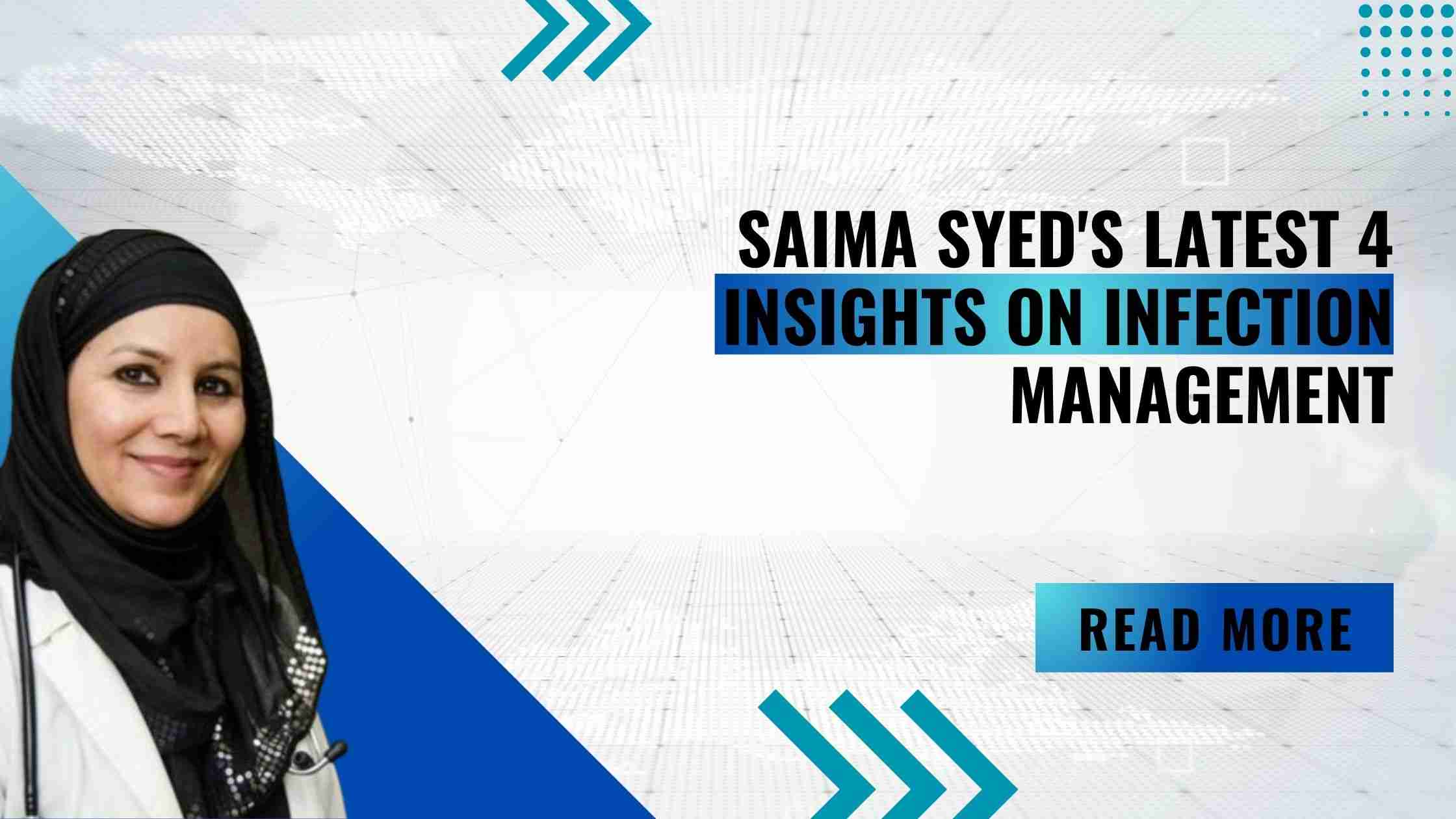Infection management is crucial in healthcare, particularly when emerging infectious diseases pose significant challenges. Saima Syed, a dedicated physician in Snellville, United States, shares her latest insights on effective infection management. Her expertise provides valuable guidance for both healthcare professionals and the general public in preventing and managing infections.
1. Emphasize Preventive Measures
Dr. Syed highlights the importance of preventive measures as the first line of defense against infections. Hand cleanliness remains a basis for infection prevention. Regular handwashing with soap and water, or using alcohol-based hand sanitizers, can significantly reduce the spread of pathogens. Additionally, she stresses the importance of vaccinations in preventing infectious diseases such as influenza, measles, and COVID-19. Vaccination not only protects individuals but also contributes to community immunity, reducing the overall incidence of disease.
2. Prompt Diagnosis and Treatment
Early diagnosis and prompt treatment are essential in managing infections effectively. Dr. Syed advocates for the use of rapid diagnostic tests to quickly identify pathogens and tailor appropriate treatment plans. She emphasizes the importance of not delaying medical consultation when symptoms of an infection appear, as early intervention can prevent complications and reduce the spread of disease. Healthcare providers should stay updated on the latest diagnostic tools and treatment protocols to ensure optimal patient outcomes.
3. Antibiotic Stewardship
Antibiotic resistance is a growing global concern, making antibiotic stewardship a critical component of infection management. Dr. Saima Syed advises healthcare providers to prescribe antibiotics judiciously and only when necessary. Overuse and misuse of antibiotics can lead to resistant strains of bacteria, complicating treatment efforts. She encourages the implementation of antibiotic stewardship programs in healthcare settings to monitor and promote the appropriate use of antibiotics, ensuring they remain effective for treating bacterial infections.
4. Educate and Empower Patients
Patient education is a vital aspect of infection management. Syed emphasizes the need to educate patients about the importance of completing prescribed treatments, understanding the difference between bacterial and viral infections, and recognizing when to seek medical help. Empowering patients with knowledge about hygiene practices, the role of vaccinations, and the dangers of self-medicating with antibiotics can significantly enhance infection control efforts. Clear communication between healthcare providers and patients fosters better adherence to treatment plans and preventive measures.
Conclusion
Dr. Saima Syed’s latest insights on infection management underscore the importance of a proactive and informed approach to preventing and treating infections. By emphasizing preventive measures, ensuring prompt diagnosis and treatment, promoting antibiotic stewardship, and educating patients, we can effectively manage infections and mitigate their impact on public health. Dr. Syed's expertise serves as a valuable resource in the ongoing effort to combat infectious diseases and protect community health.
Visit: https://www.zocdoc.com/doctor/saima-syed-md-17514
